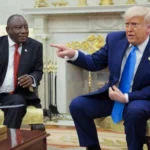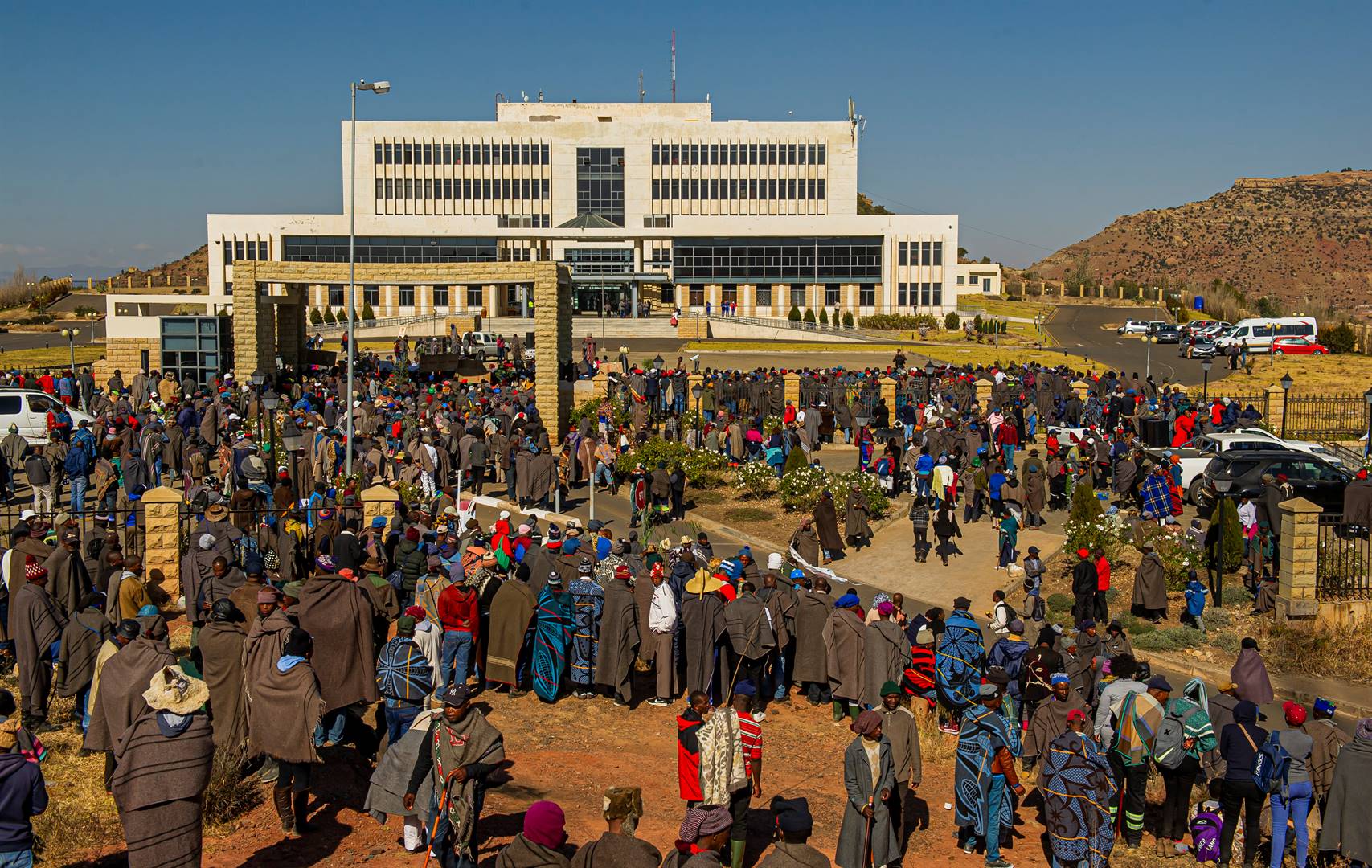Karabo Ramathe
Basotho National Party (BNP) leader Machesetsa Mofomobe has raised alarm over the reported denial of medical services to Basotho living and working in South Africa, calling it a failure of leadership by Lesotho’s government.
Mofomobe said both documented and undocumented Basotho deserve access to healthcare in South Africa, citing the country’s National Health Act of 2003, which he said guarantees primary healthcare to all persons within its borders, regardless of their legal status.
He commended the Southern African Human Rights Commission and South African President Cyril Ramaphosa for recognising that denying access to healthcare is a criminal act.
“The Prime Minister and the Minister of Home Affairs have failed Basotho living in South Africa,” Mofomobe said. “These are the same people who send money home and keep our economy afloat, yet they are being ignored.”
His remarks follow recent Newsday reports that several Basotho residing in South Africa are being turned away from public health facilities, even when they hold valid documentation.
A Mosotho woman in Vosloorus said she was denied care at a local clinic despite presenting a valid passport. Another woman in Soshanguve, Pretoria, said she was refused family planning services, even though her documents were in order.
The incidents reflect a growing wave of hostility toward foreign nationals in South Africa, driven by political parties and pressure groups such as ActionSA and Operation Dudula.
ActionSA, through its Parliamentary Chief Whip and National Spokesperson Lerato Ngobeni, has declared its intent to “end abuse of public healthcare by illegal foreigners,” claiming that health facilities are “overburdened, under-budgeted and lack the staff and resources” to serve all.
“We reject the continued abuse of our hospitals by people who are illegal in the country because they are criminals,” Ngobeni said.
Operation Dudula has taken a more extreme stance, calling for both documented and undocumented foreigners to be barred from public facilities altogether. The group insists that foreign nationals should pay for private healthcare or leave the country if they cannot afford it.
“South Africa’s resources are under pressure. It’s only fair that non-citizens contribute their share by paying privately,” the group said in a recent statement.
Healthcare centres reportedly affected by these actions include Rosettenville, Vosloorus, Addington, and Hillbrow.
In a controversial twist, a Lesotho government official appeared to side with the anti-foreigner sentiment.
Pulane Lesita, spokesperson for the Ministry of Foreign Affairs, told this publication last week that South Africans are within their rights to prioritise citizens at public healthcare facilities.
“They are not saying foreigners, including Basotho, should not access services,” Lesita said. “They are saying foreigners must access services that are paid for and leave public services for South Africans.”
She added: “Basotho in South Africa are not paying tax there. If this were happening in Lesotho, even our own citizens would not be happy with foreigners burdening the system.”
Lesotho, a landlocked country entirely surrounded by South Africa, shares a long and porous border with its economically dominant neighbour. Over the years, generations of Basotho have crossed that border, legally and otherwise, in pursuit of better opportunities.
For many, South Africa is not just the nearest destination, but the only realistic option for employment, education, healthcare, and basic survival.
Historically, South Africa’s mining industry absorbed large numbers of Basotho men, many of whom spent decades working underground and sending money home to support their families.
Even as the mining sector declined, Basotho workers shifted to other industries, factories, construction, domestic work, farming, and the informal economy. Others cross daily or weekly to access better-resourced schools, clinics, and hospitals unavailable in their villages back home.
Remittances from these migrant workers are vital. They help families buy food, pay school fees, build houses, and fund small businesses. In some districts of Lesotho, remittances are the primary source of income for entire communities.
The South African economy is, in this way, deeply interwoven into Lesotho’s social fabric and economic stability.
However, that lifeline is now under threat.
As South Africa grapples with high unemployment, service delivery failures, and political instability, frustration has increasingly been directed at foreign nationals.
Anti-immigrant rhetoric, fueled by political parties, vigilante groups, and parts of the media, has found fertile ground, often scapegoating migrants for the country’s systemic problems. This has led to rising xenophobic violence and the introduction of exclusionary policies targeting non-citizens in housing, education, and healthcare.
Basotho living in South Africa, whether they hold proper documentation or not, now face mounting hostility. Many report being harassed, assaulted, or denied access to services.
Healthcare facilities, in particular, have become flashpoints. Despite South Africa’s constitution and health laws affirming the right to access primary healthcare for all, some clinics and hospitals are increasingly turning non-South Africans away.
For Lesotho, this trend has far-reaching implications. Beyond the humanitarian concern for citizens abroad, reduced access to services, job loss, and declining remittances could destabilise the country’s already fragile economy and social systems.
Summary
- Basotho National Party (BNP) leader Machesetsa Mofomobe has raised alarm over the reported denial of medical services to Basotho living and working in South Africa, calling it a failure of leadership by Lesotho’s government.
- Mofomobe said both documented and undocumented Basotho deserve access to healthcare in South Africa, citing the country’s National Health Act of 2003, which he said guarantees primary healthcare to all persons within its borders, regardless of their legal status.
- He commended the Southern African Human Rights Commission and South African President Cyril Ramaphosa for recognising that denying access to healthcare is a criminal act.

Your Trusted Source for News and Insights in Lesotho!
At Newsday Media, we are passionate about delivering accurate, timely, and engaging news and multimedia content to our diverse audience. Founded with the vision of revolutionizing the media landscape in Lesotho, we have grown into a leading hybrid media company that blends traditional journalism with innovative digital platforms.









